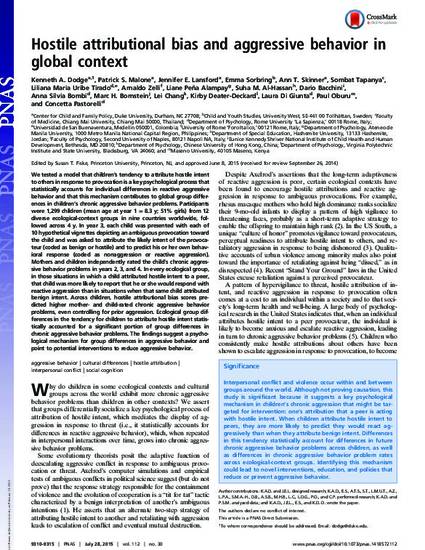
We tested a model that children’s tendency to attribute hostile intent to others in response to provocation is a key psychological process that statistically accounts for individual differences in reactive aggressive behavior and that this mechanism contributes to global group differences in children’s chronic aggressive behavior problems. Participants were 1,299 children (mean age at year 1 = 8.3 y; 51% girls) from 12 diverse ecological-context groups in nine countries worldwide, followed across 4 y. In year 3, each child was presented with each of 10 hypothetical vignettes depicting an ambiguous provocation toward the child and was asked to attribute the likely intent of the provocateur (coded as benign or hostile) and to predict his or her own behavioral response (coded as nonaggression or reactive aggression). Mothers and children independently rated the child’s chronic aggressive behavior problems in years 2, 3, and 4. In every ecological group, in those situations in which a child attributed hostile intent to a peer, that child was more likely to report that he or she would respond with reactive aggression than in situations when that same child attributed benign intent. Across children, hostile attributional bias scores predicted higher mother- and child-rated chronic aggressive behavior problems, even controlling for prior aggression. Ecological group differences in the tendency for children to attribute hostile intent statistically accounted for a significant portion of group differences in chronic aggressive behavior problems. The findings suggest a psychological mechanism for group differences in aggressive behavior and point to potential interventions to reduce aggressive behavior.
